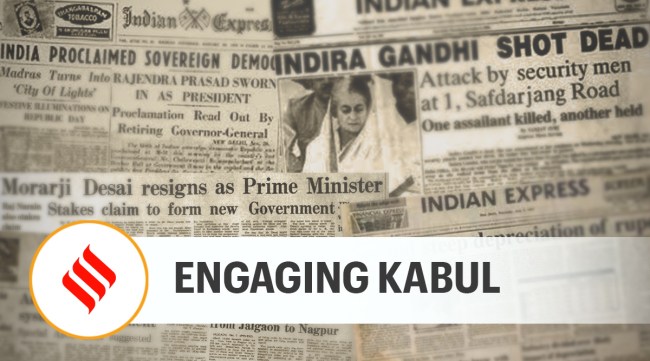Opinion India sending medical aid to Afghanistan is a sign of thaw in bilateral relations
🔴 The dispatch of humanitarian aid may be a diplomatic opportunity for India, but the security concerns, arising from the Taliban’s proximity to Pakistan and the terrorist groups based there, will continue to circumscribe the efforts.
 The Taliban have welcomed India’s offer of help and have consistently said they value the assistance of all countries in the region.
The Taliban have welcomed India’s offer of help and have consistently said they value the assistance of all countries in the region. Delhi’s decision to send a consignment of medicines to Afghanistan is another sign that the government is now coming around to the reality of the Taliban regime in Kabul and is finding ways to reach out to them. Humanitarian aid through a third party is a legitimate way of engaging with a government without appearing to do so, and India is only following in the footsteps of most other countries. Delhi may couch this as a decision to help the Afghan people, but in the de facto real world, trying to make a distinction between the people and the Taliban is at best naive, at worst disingenuous. Had Delhi really wanted to make that separation, it would have decided to assist Afghans to leave the country. This is clearly not the case, except for Operation Devi Shakti, which as the name suggests, is a mission to evacuate Indians, Hindu and Sikh Afghans, apart from a handful of privileged Muslim Afghans. The consignment of medicines that India has sent will be given to a children’s hospital through the World Health Organisation, which has itself been in talks with the Taliban leadership to prevent a total collapse of the Afghan health system in this time of Covid.
The Taliban have welcomed India’s offer of help and have consistently said they value the assistance of all countries in the region. Indeed, it was due to the intervention of the Taliban that Pakistan changed its mind and allowed India to send wheat to Afghanistan through the Wagah border, which is the shortest route from India. However, this consignment has not yet been sent. The logistics required to send the 50,000 metric tons is complex, including paperwork and an interchange of trucks at Wagah border. The nearly three-year long absence of trade relations between India and Pakistan has led to the dismantling of systems at the land border. The medicines were sent on a return flight of a plane that brought evacuees to India last week.
Delhi’s eagerness to engage with the new dispensation in Kabul has been more than evident over the last few weeks. As a regional power that has played an enormous role in development projects in Afghanistan over the last two decades, India has chafed at being excluded from most regional discussions on the future of Afghanistan both in the run up to the Taliban takeover and after that too. Pakistan’s open show of ownership over the Taliban, and its statements suggesting that India is a “spoiler” in Afghanistan, have not made matters easier. The dispatch of humanitarian aid may be a diplomatic opportunity for India, but the security concerns, arising from the Taliban’s proximity to Pakistan and the terrorist groups based there, will continue to circumscribe the efforts.
This editorial first appeared in the print edition on December 13, 2021 under the title ‘Engaging Kabul’.



